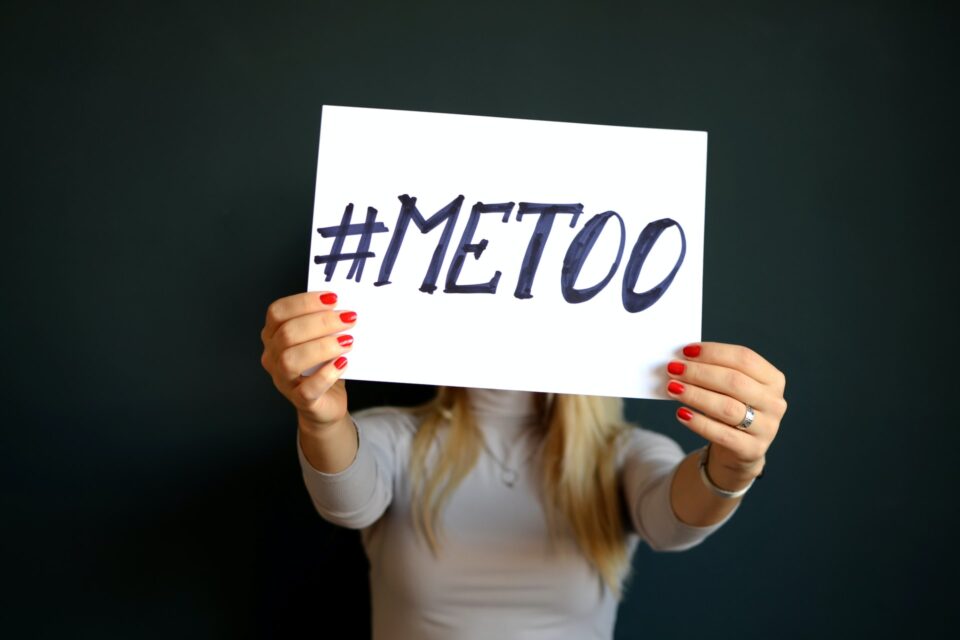As a result of the sweeping expansion of the Forced Arbitration Act, class action waivers and forced arbitration clauses flourished in all areas of corporate law. Forced arbitration has become so pervasive that law review articles are bombastically calling it an “epidemic” and “the end of the law.”
However, consumer, employment, and civil rights lawyers have started to fight back. In arbitration, organizing, and policy creation, lawyers and plaintiffs alike have started to draw lines in the sand. Remington Gregg, policy expert and former Counsel for Civil Justice and Consumer Rights at Public Citizen, a consumer advocacy non-profit, believes “showing how forced arbitration clauses have been used to continue systemic wrong doings” has created “momentum . . . based in large part on the lack of accountability” on the part of corporations, particularly on issues of discrimination.
Plaintiffs’ lawyers have decided to weaponize the process of arbitration by taking the class action model of amassing large groups of plaintiffs and bringing it into the world of arbitration. In “mass arbitrations” plaintiffs bring hundreds or even thousands of individual arbitrations that would traditionally be a single class-action in the courts. This has several advantages.
First, much of the upfront costs for arbitration are paid by the defendants. By bringing hundreds or thousands of arbitration claims, suddenly a legal scheme originally intended to save a company money can become more costly than going to court, particularly in consumer or small dollar wage-claim cases. Faced with exorbitant fees, corporations can be incentivized into agreeing to a good settlement for all plaintiffs, much like a settlement of a class action case.
However, some corporations would rather fight their own arbitration clauses than pay such settlements, crying foul. Defense lawyers, including Kaplinky, believe holding corporations to the contracts they crafted is unfair. When he was first faced with a mass arbitration notice, he says, “I felt a little bit like it was a holdup—that my client didn’t really have much of a choice.”
Matt Webb, Senior Vice President of Legal Reform Policy for the U.S. Chamber of Commerce, a business-focused lobbyist group, worries in instances of mass arbitration, “it’s less about the facts of the case and what was done or not done . . . versus just trying to use the sheer size or number of claims as a bludgeon to effectively force a settlement.”
These critiques primarily address concerns surrounding consumer and other small claims and fall short of addressing mass arbitrations that involve larger claims, such as employment discrimination. Additionally, if corporations truly have done nothing wrong, plaintiffs will lose in arbitration. Kaplinksy believes “plaintiffs’ lawyers are no more interested in prosecuting thousands of individual arbitrations than the company is in defending them,” and argues that calling the bluff of plaintiffs’ lawyers who bring a mass arbitration would be an effective tactic for corporations to avoid settling in where no wrong-doing has occurred.
Despite the detractors, those who oppose forced arbitration see this approach as an effective strategy. “I would say that [mass arbitration] has become a device . . . that consumers and workers have used to ensure that the system works for them,” says Gregg. Intuit and Postmates, both of which have class action waivers in their arbitration clauses, have crawled back to court, asking for class action settlements after being overwhelmed by thousands of individual arbitration fees.
“The only thing they’ve got left is the right to arbitrate. And now you want to take that away from them.”
The courts have not been sympathetic to these corporate cries, instead forcing companies to stay in arbitration or settle. “Faced with having to actually honor its side of the bargain, [DoorDash] now blanches at the cost of the filing fees it agreed to pay in the arbitration clause.” said U.S. District Judge Alsup of San Francisco to a plea by DoorDash, who was faced with over 5,000 cases to arbitrate and $12 million in arbitration fees. Referring to the plaintiffs, J. Alsup wrote, “The only thing they’ve got left is the right to arbitrate. And now you want to take that away from them.”

DoorDash forced its contractors to sign away their right to class actions, but once faced with mass arbitration, the company tried to bring them back to court.
Credit: Griffin Wooldridge – Unsplash
Another reason why mass arbitration is attractive is that the work that goes into building a case becomes more efficient for a plaintiffs’ lawyer the more cases they have. If the same corporate misconduct affects all the people the lawyers represent, the amount of work become redundant, and the risks of the financial cost to the firm goes down as the amount of work for each new arbitration decreases.
This doesn’t cure issues with forced arbitration, however. Lawyers who bring these arbitrations face down big law, corporate lawyers who defend the same corporate misconduct in arbitration after arbitration. And defendants will fight tooth and nail to prevent any positive outcome.
Zachary Rubin, a plaintiffs’ lawyer who works on mass actions at employment law firm Lichten &Liss-Riordan, P.C., says that while mass arbitration is a way forward, it is also an indictment of the positives that arbitration is supposed to provide: “When you go to court, we get a lot of companies talking about, ‘well arbitration is more efficient’ . . . . The reason we know that is complete nonsense is because in many cases a class action would be more efficient.”
Each individual arbitration in a mass arbitration is still a single person going through all the arbitration procedures. This means that similar cases that have what lawyers refer to as “a common nucleus of facts” are arbitrated over and over. Rubin relates his criticism back to the class action law: “[I]f you look at the Rule 23(b)(3) factor of superiority, and you look at the case law on, you know, whether the class action will achieve economies of time, effort, and expense . . . . There’s clear tension . . . all the case law that says class actions are more superior.”
The reason we know that is complete nonsense is because in many cases a class action would be more efficient.
The repeated claims in a mass action also provide avenues for corporations who want to use every opportunity to draw out the process and make the individual claimant, and their lawyers (if they have any), miserable. Even though plaintiffs’ firms reduce some time on each case by following the same facts, defense lawyers use tactics to repeatedly throw up barriers. “Should it really be that you can have dozens or even hundreds of common claims and force all those individuals, perhaps represented by the same law firm…[to] go through discovery on the same issue again and again and again and again?” Says Rubin, “That just would never happen in federal court because the magistrate or the federal district court judge would say, you know, ‘That’s crazy.’”
“That just would never happen in federal court because the magistrate or the federal district court judge would say, you know, ‘That’s crazy.’”
While these tactics prolong the process, they rarely result in a different outcome, says Rubin. “We literally would win certain legal issues . . . procedural issues that were important again and again . . . but they still made us file briefs in the fifty-first arbitration even though we won the issue fifty, fifty-one times—because [the defense lawyers’] strategy was just to make the process as burdensome as possible.”
Importantly, while mass arbitration has a lot of appeal for plaintiffs’ lawyers, it does little to shield the individual who brings an arbitration action from the hostile environment of a secret proceeding where the company has already dictated the rules. And while plaintiffs’ lawyers may be able to save time in this model, many believe the true purpose of arbitration is to make the client drop the claims. After all, Rubin explains, the defendants are often being supported by a lawyer who will do everything they can to “put [plaintiffs] through the wringer” and do “full-day depos[itions]…seemingly because they want to make the experience miserable for the workers.” Proponents of forced arbitration argue that arbitration is less adversary than trail, but with tactics such as these, it can be just as hard, if not harder, to go through the arbitration process as going to court.
Corporations, their defenders, and arbitration providers are already trying to insulate corporations from this new tactic. On February 28, 2022, dating app Hinge updated its terms of service to include mass arbitration provisions, which trigger when more than twenty-five “similar demands” are asserted, and if more than 30 similar claims are filed, fees are delayed until after a set of proceedings.
In November 2020, AAA updated its fees to implement a sliding scale for “multiple consumer cases.” Though on the surface it might seem strange that an arbitration company that professes to be neutral provide fee scales that make it easier for corporations, it makes sense from both a marketing and a self-preservation tactic: if you can prevent a corporation from feeling overwhelmed by fees, you can still get their money for a slightly lower price.
For critics of arbitration, the lessons of mass arbitration are clear. “There’s some examples of . . . companies ending the use of forced arbitration because of mass arbitration,” says Gregg. But, Gregg continues, “the ultimate takeaway for me is a confirmation that forced arbitration is a claim suppressor. It’s not something that [corporations] want because they enjoy arbitration. They use it because so few people often go into it, and when they start to use it [corporations] then try to rewrite those rules.”
“The ultimate takeaway for me is a confirmation that forced arbitration is a claim suppressor.”
Organizers in privileged positions can also make a difference in the world of corporate power. In 2019, a student group at Harvard Law School learned students were being asked to sign arbitration agreements for their summer internships. Instead of signing these agreements, they organized.
The People’s Parity Project reached out to other groups including LGBTQ+ advocacy group, Lambda, to form a movement. Quickly, HLS students made it clear that they would not work for high-end, well-known law firms that required students to sign arbitration agreements. “We actually organized a leafleting campaign outside of Venable’s office in D.C. when they were having a recruiting event for rising 2Ls,” Beth Feldstein, a field organizer for People’s Parity Project, told the Harvard Law Record. Their work and partnership spread to other law schools including Yale, Stanford, and NYU. Then, forty law school deans asked firms to disclose whether they require mandatory arbitration agreements for their employees.
In part because law is a business that equates prep school cache with advertising, students won. Organizers got top law firms across the country including Kirkland & Ellis, Sidley Austin, and Gibson, Dunn & Crutcher to stop requiring arbitration agreements, not only of their interns and lawyers, but their staff, including janitors and cafeteria workers, who are often left out of such protections.
While this story proves that organizing can be effective in preventing further proliferation of forced arbitration agreements, it may be hard to replicate. Students at top law schools and employees at Google may feel able to protest arbitration, but most consumers and the vast majority of the non-union workforce will not be able to turn down such agreements for healthcare, phone service, or jobs.




![[F]law School Episode 6: The Corporatization of Drag](https://theflaw.org/wp-content/uploads/2024/11/Burns_FeatureImage-640x427.jpeg)

![[F]law School Episode 13: The Migrant Trap](https://theflaw.org/wp-content/uploads/2025/03/Drury_FB2-e1742192209662-640x427.png)





